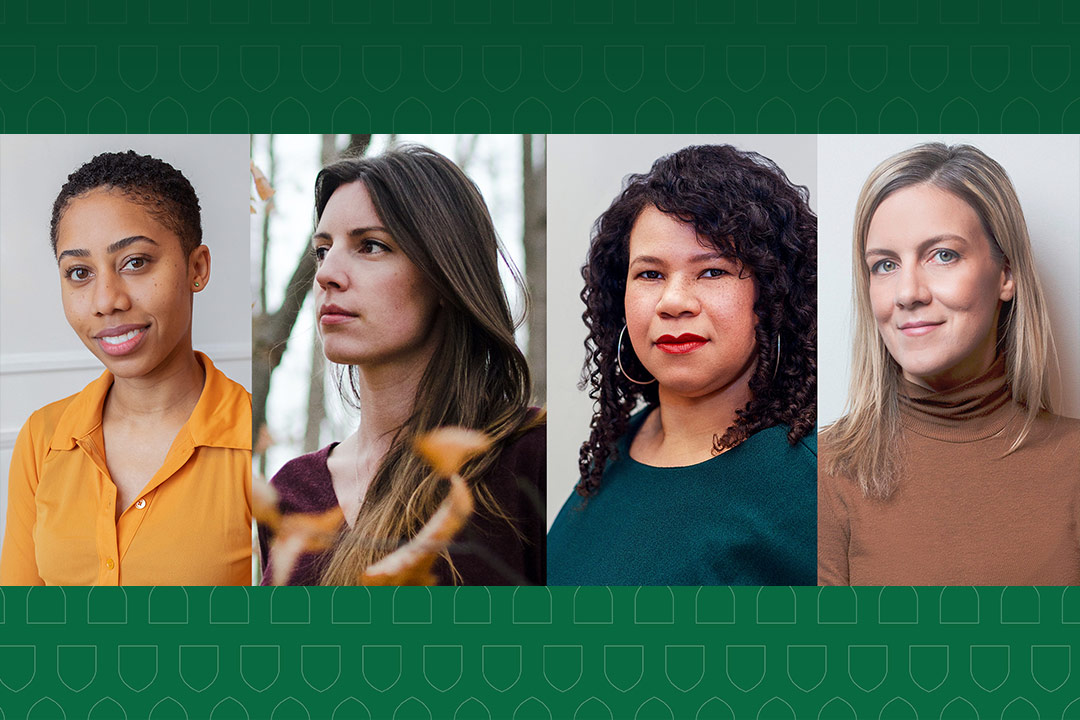Publication_Information

Re-mapping the Terrain
April 08, 2022 - April 09, 2022
A keynote presentation and symposium featuring arts leaders Alyssa Fearon, Tarin Dehod and Crystal Mowry Moderated by Leah Taylor | Hosted by the Department of Art and Art History Free and open to the public | Mask requirements are in place at the University of Saskatchewan. KEYNOTE PRESENTATIONS Alyssa Fearon (Director/Curator, Dunlop Art Gallery) in conversation with Each of the invited speakers are active in their restructuring and rethinking of organizational governance and/or are proposing new ways in which institutions present work, the roles that they play in building community and how to foster and develop truly sustainable practices. While this is taken directly from Fearon’s bio, each of them has committed to practices that 'prioritize the voices of historically underrepresented groups'. Dehod in her context has been working to understand the role of the artist-run centre in joint ownership with communities, as a space that is created and given meaning through the actions of its users. In response to assuming her position at the MacKenzie, Mowry stated, “While an institution can hold only so much of what makes its respective communities who they are, I am honoured to be learning alongside colleagues who share a commitment to making our work more porous, more experimental, and ultimately, more human. Re-mapping the Terrain: A Re-emergence Assembly
Friday, April 8, 2022
6:30pm - 8pm
Murray 299 (Lecture Hall above the Snelgrove)
in person, and online
Tarin Dehod (Executive Director, AKA Artist Run)
Crystal Mowry (Director of Programs, MacKenzie Art Gallery)
Leah Taylor (Curator, University of Saskatchewan Art Galleries and Collections)
We are hoping for this assembly to afford exactly these actions!
Bios
TARIN DEHOD Tarin Dehod was born on unceded Mi’kmaq and Wabanaki Confederacy land originally known as Epekwitk and now lives and works on Treaty 6 Land that encompasses the traditional homeland of numerous First Nations, including Cree, Dene, Plains Cree, Nakota, Saulteaux, and Ojibwe, and the homeland of the Métis Nation. Since 2014, Tarin has served as the Executive Director of AKA, working to understand the role of the artist-run centre in joint ownership with communities, as a space that is created and given meaning through the actions of its users.
CRYSTAL MOWRY (she/her) is the Director of Programs at the MacKenzie Art Gallery. She previously held the position of Senior Curator at the Kitchener-Waterloo Art Gallery where she oversaw the gallery’s exhibitions, collections, and publishing activities for over a decade. Her work often explores the tension between perceived authenticity and troubled forms of representation. As a curator operating primarily within the context of a public art museum, she treats her role as equal parts co-conspirator and translator, often seeking ways to support artists in the development of new projects. Her solo projects with Ontario-based artists Maggie Groat and Ernest Daetwyler have received Exhibition of the Year Awards from the Ontario Association of Art Galleries (now Galleries Ontario Galeries) and in 2020 she was a recipient of a Waterloo Region Arts Award. She has written curatorial and experimental texts for various artist-focused publications on the work of Brendan Fernandes, Shary Boyle, Mark Clintberg, and Deanna Bowen. She regularly participates on advisory panels and industry juries, most recently the Scotiabank Photography Award (2021).
Drawing responsively from the dialogue from the evening before and the prompts of response-ability and sustainability, members of the cultural ecology of Sasaktoon will engage in a public conversation.
This process in many ways reflects on what was begun by USASK galleries in concert with David La Riviere of PAVED at the beginning of the pandemic, with a small series of Saskatoon based community programming meetings as a way to check in on one another, but also to help bolster our individual capacities by knowing where and what people were doing within the ecology. This led to a sharing of many things including participation of several centres in the AKA hosted project, tofeelclose.
We need to take up again new methods of connection and care, articulate the spaces and places of contact and intersection, and are very grateful for your participation here.
Session one: Response-ability (11-12:30pm)
Participants will be invited to consider both their responsibilities (to audiences, communities and each other), and what abilities one has to deliver on those commitments. What in your professional positionality informs the capacity to respond and what might need to shift to increase one’s ability to respond better or more responsibly? Can we collectively identify our ecology’s needs at this moment through better understanding of one another’s specific response-ability? Could this understanding lead to a redistribution of labours, concerns, and practices?
Session two: Sustainability (1:30-3pm)
Each of us is part of a project or space that has endured through the pandemic when others have not, likely due to our response-ability. What do you now imagine to be requisite for building sustainable practices and approaches to ensure a viable cultural ecology?
Our provincial growth plan does not include us in depth and defines us collectively as ‘culture industries’. What are the necessary supports and tactics required to sustain and deepen our practices both alongside this capitalist and extractivist governing drive, and otherwise? What is needed to sustain wellbeing and longevity within this community? What relationships must we foster?



